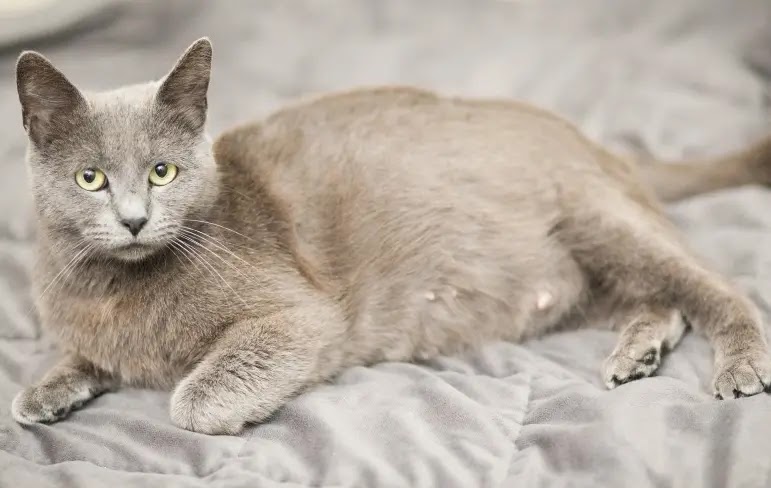Cat food during pregnancy
Many breeders wondered about the appropriate cat food during pregnancy, as malnutrition can lead to low birth weight, which puts them at risk due to many health conditions that lead to a low survival rate, so during this article we will explain in detail what It is food for cats during pregnancy.
What is cat food during pregnancy?
5 tips for feeding pregnant cats:
- Determining nutritional priorities in cat food
- The right amount of food for pregnant cats
- Types of food suitable for pregnant cats
- Avoid using calcium supplements for pregnant cats
- Cut down on carbohydrates from pregnant cat food
1- Determining nutritional priorities in cat food
To ensure optimal nutrition is provided to both the mother cat and her young, food priorities should be set:
- Increase caloric energy for the growth of kittens and the production of milk for the mother.
- Increase fat to meet the mother's high caloric needs.
- Increase protein for the growth and development of kittens.
- Increase calcium and phosphorous for cat bone growth and breast milk production.
- High digestibility to provide more calories in less food.
2- The right amount of food for pregnant cats
Pregnant cats will gradually increase their food intake from the day they mate until the end of their pregnancy when they will eventually be around 50% more than their normal level.
Pregnant cats usually eat enough food and then stop when they are satisfied, and a high-quality digestive formula is generally recommended for cats during pregnancy.
It is recommended to offer several small meals to the mother cat to maintain an adequate amount of nutrients and calories, especially in the last trimester of pregnancy.
Pregnant cats that are healthy and adequately fed testify; Steady weight gain throughout pregnancy, but overfeeding can lead to obesity at the end of pregnancy, increasing the risk of complex labor and stress for kittens.
Conversely, undernutrition during pregnancy can lead to fetal loss or abnormal development, stillbirth, or low birth weight kittens that fail to thrive at birth, so it is recommended to monitor weight and body condition with increased food as needed.
3- Types of food suitable for pregnant cats
If she prefers wet food, remember that it contains fewer calories than dry food. So try mixing them together to give her the extra energy she will need.
Try to provide food at all times and leave dry food for her to feed on, in addition to plenty of fresh water to maintain the mother cat’s energy, as kittens begin to grow from the ninth week of pregnancy, the amount of food provided to them should increase since then Gradually, until she breastfed her young.
You may notice your cat gaining weight when she starts eating more, because of the fat she eats to help her feed her kittens, so weight gain at this point is completely normal, and she starts losing it again during the 3-4 week nursing period.
4- Avoid using calcium supplements for pregnant cats
Some cat owners mistakenly believe that it is necessary to give pregnant cats calcium supplements or add cottage cheese to their diet since calcium is important for healthy bone and teeth development, but supplementation is usually not recommended.
The reason is that too much calcium in your cat's diet during pregnancy can lead to preeclampsia in cats due to inhibition of the production of the hormone that helps cats use stored calcium.
Your cat's food should contain an adequate amount of calcium, and in rare cases, your cat may need additional calcium supplements. Still, unless specifically recommended by your veterinarian, calcium supplements should be avoided.
5- Reduce carbohydrates from the food of pregnant cats
In contrast to humans, cats do not depend on carbohydrates for energy, as their bodies convert fats and proteins into energy. Cats have little or no need for carbohydrates in their diet, and in fact, find it difficult to digest them properly.
Like human mothers, pregnant cats need extra calories during pregnancy, but they should come from proteins and healthy fats and not from carbohydrates, this way their body will get the energy it needs for a healthy pregnancy.
It is recommended to use a distinct brand of cat food with fewer carbohydrates and more protein. Fish oil supplements can also be given to your cat. Extra healthy fats like omega-3 fatty acids.



Does this have a Youtube Video?
ReplyDeleteSoon I will work on it
Delete